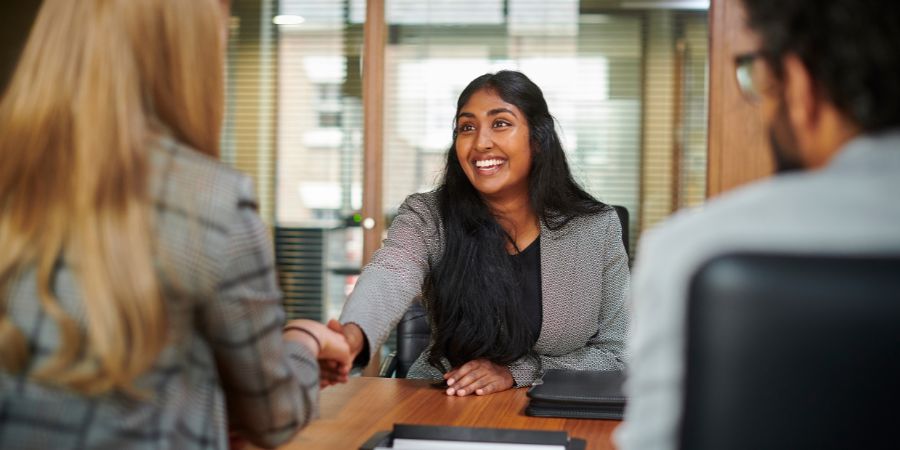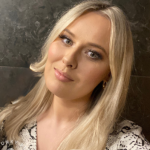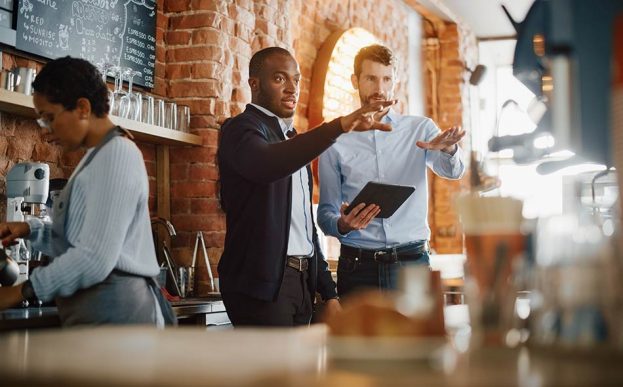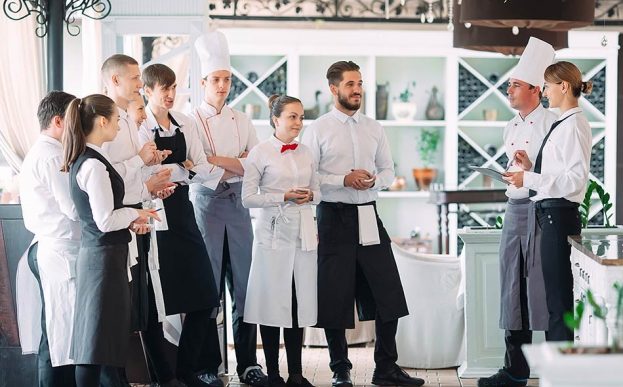Making a positive first impression during a job interview is essential, and your choice of attire plays a significant role in achieving that goal. The way you dress reflects your professionalism and respect for the opportunity at hand.
In this guide, we’ll delve into the essentials of dressing appropriately for a job interview. We’ll explore what to wear and what not to wear to a job interview, helping you avoid common fashion blunders that could hinder your chances of landing that dream job.
Without further ado, let’s jump in!
What Not To Wear to a Job Interview
As you prepare for your job interview, you’ve likely put careful thought into selecting the perfect outfit to make a great impression. However, sometimes it’s equally important to know what not to wear to a job interview.
In the following paragraphs, we’ll guide you through inappropriate interview attire that is better left inside your closet.
Athletic and Overly Casual Clothing
Wearing athletic and overly casual clothing, such as t-shirts, tank tops, sweatshirts, tracksuits, leggings, yoga pants, jeans and denim or bomber jackets to a job interview will create an unprofessional and careless impression.
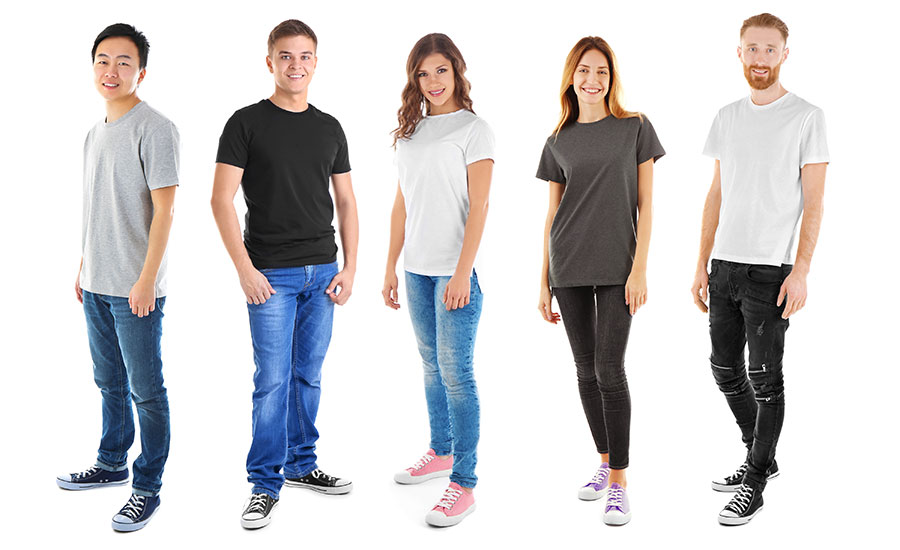
Job interviews require a level of formality and respect for the process, and these clothing choices may signal a lack of seriousness or preparedness.
Overly Revealing Clothing
It’s best to avoid wearing overly revealing attire, such as mini dresses, mini skirts, tube tops, cropped tops or outfits with deep necklines, to a job interview.
Revealing attire can give the impression of a lack of professionalism and may make interviewers uncomfortable.
Clothing That Exposes Your Undergarments
Dressing in a way that shows your undergarments, such as visible bra straps or underwear lines, is strongly discouraged for a job interview.
This kind of attire is considered unprofessional and distracting. It can convey a lack of attention to detail and may give the impression that you are not taking the interview seriously.
Ill-fitting, Faded or Ripped Clothing
Ill-fitting, faded or ripped clothes can create a negative impression and signal a lack of attention to detail and professionalism.
Job interviews require a well-groomed and put-together appearance, and wearing attire that doesn’t fit properly or is in poor condition may send a message of disrespect towards the opportunity.
Wrinkled or Stained Clothing
Wearing wrinkled or stained clothing leaves a negative impression, suggesting a lack of care and preparation for the interview.
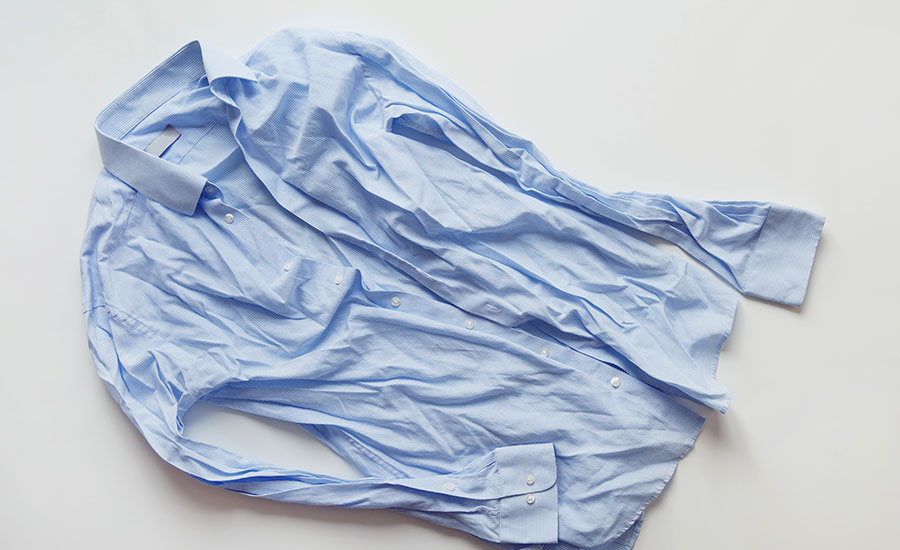
It’s important to wear clothing that is clean, well-maintained and neatly pressed to show your commitment to professionalism and respect for the interview process.
Too Bright or Flashy Clothing
Excessively bright or flashy attire tends to be visually overpowering and can create a less-than-serious image in a formal setting.
Too Many Accessories and Jewelry
While personal style is important, overdoing it in this area can lead to distractions and may be seen as unprofessional in a formal setting.
Heavy Makeup and Too Much Perfume
Wearing heavy makeup can be distracting and doesn’t align with the professional atmosphere of the interview setting, while strong or overwhelming scents can be off-putting and may cause discomfort for interviewers with sensitivities.
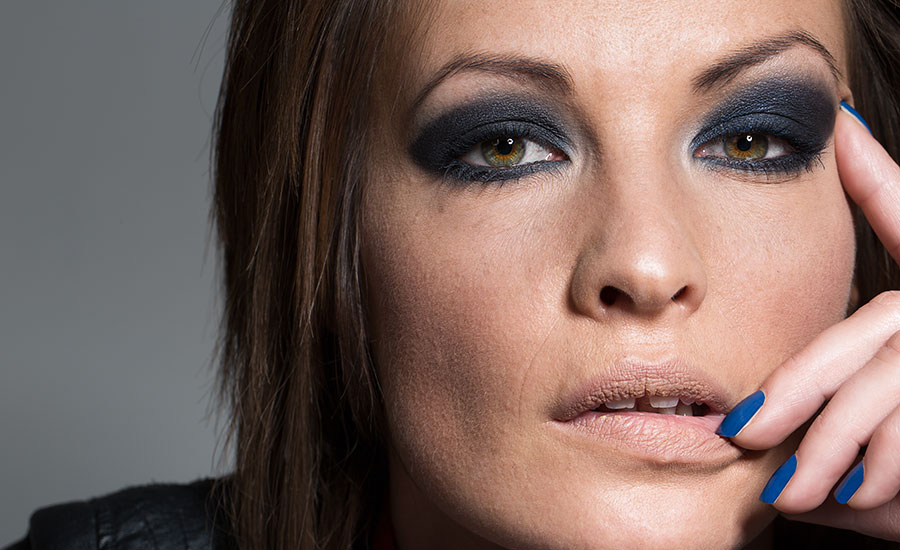
Headwear
It’s best to avoid wearing headwear to an interview, as it can be seen as too casual or even impolite. Exceptions might include religious head coverings or hats in specific industries like fashion.
Inappropriate and Uncomfortable Footwear
Your choice of footwear is an essential part of your overall professional appearance.
Sneakers, flip-flops or overly casual sandals may convey a lack of seriousness or professionalism. On the other hand, excessively high heels can be uncomfortable and may affect your confidence and ability to focus during the interview.
Scuffed or worn-out footwear may suggest a lack of attention to detail and professionalism. Moreover, it can detract from an otherwise well-put-together outfit.
Brightly colored shoes, while they can be a fun fashion choice in other contexts, are considered inappropriate interview attire.
What You Should Wear to an Interview
Now that we have covered what not to wear to a job interview, let’s shift our focus to what you should wear to make a positive and lasting impression during your job interview.
Suits
Suits are a classic choice for interviews because they exude professionalism and formality. They convey a sense of seriousness and respect for the opportunity.

A well-fitted suit in a neutral color, like black, navy or gray, can create a powerful and lasting impression on your potential employer.
Blazers
If you’re not wearing a full suit, a blazer can still add a touch of professionalism to your outfit. Pairing a blazer with dress pants or a skirt creates a structured and business-appropriate look.
Dress Pants
Dress pants are a staple for interviews, providing a sophisticated and polished appearance. Neutral colors, such as black, charcoal or khaki, are safe choices that convey a professional image.
Midi Dresses and Midi Skirts
Midi dresses and skirts strike a balance between being too short and overly long, making them suitable for professional settings. They provide ample coverage, ensuring that you appear well-dressed and respectful of the formality of the interview.
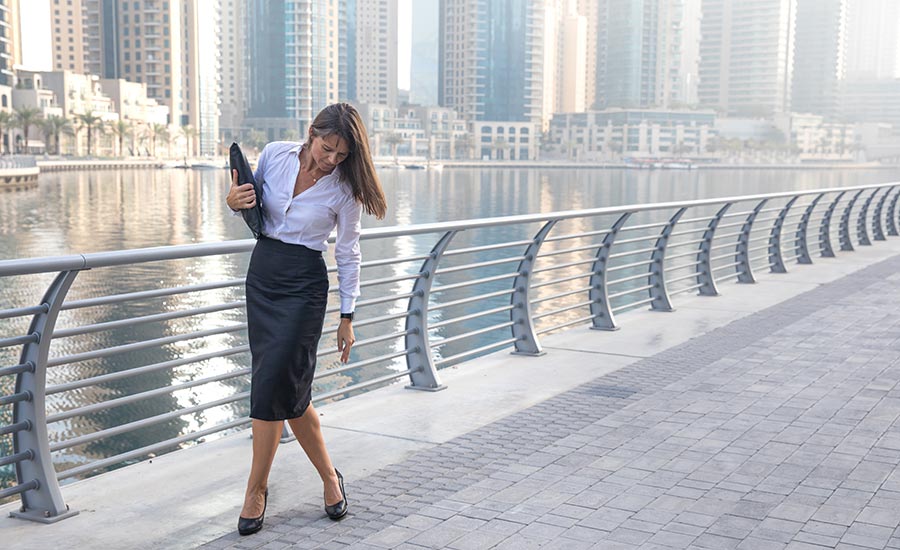
Button-Down Shirts
Button-down shirts are a classic choice for interviews. They offer a clean and polished look when paired with dress pants or a skirt. Choose solid colors or subtle patterns for a professional appearance.
Dress Blouses
Dress blouses, often made of lightweight and breathable fabrics, are excellent for interviews. They are comfortable and can be paired with dress pants or a skirt. Make sure your blouse for an interview is in neutral or soft colors.
Turtlenecks
Turtlenecks provide a sleek and sophisticated appearance. They are suitable for interviews in colder weather.
Coats
A well-chosen coat can complete your interview outfit, especially in colder months. Opt for a coat that complements your overall look and adds an extra layer of professionalism.
Classic Dress Shoes and Low-Heeled Shoes
Classic dress shoes such as oxfords or derbies in black or brown will work great for a job interview. These shoes convey professionalism and timeless elegance, making them suitable for traditional office settings.

Additionally, such shoes are comfortable for extended periods of wear, ensuring that you can focus on the interview rather than discomfort.
Low-heeled shoes, such as pumps or closed-toe heels, are excellent choices for female candidates participating in job interviews. These shoes offer a touch of sophistication without sacrificing comfort. They also pair well with various interview outfits, including dresses, skirts or dress pants.
Ankle or Calf-Length Boots
Ankle boots can be a stylish and versatile option for job interviews, especially in more creative or relaxed industries. They offer a contemporary and polished look while providing comfort and support.
Calf-length boots are another option for job interviews, especially in colder seasons. These boots provide additional coverage and warmth while maintaining a sophisticated appearance.
Minimal Jewelry
Choose simple, understated jewelry such as small stud earrings, a classic wristwatch and a subtle necklace or bracelet. Avoid overly large or flashy jewelry that could be distracting.
Tie or Scarf
If you’re wearing a suit or dress shirt, consider a tie (for men) or a scarf (for women) that complements your outfit. Stick to classic, conservative patterns and colors.

Light Makeup and Subtle Perfume
Light makeup and subtle perfume strike a balance between presenting yourself well and maintaining a professional, unobtrusive demeanor. They allow your qualifications and suitability for the job to take center stage during the interview, which is ultimately your primary goal.
How To Dress for a Video/Online Interview
When preparing your attire for a video or online interview, it’s essential to consider several factors to project a positive and professional image:
- Avoid clothing with loud or distracting patterns: Similar to what you would do for in-person interviews. Vibrant prints, stripes or overly busy designs can visually overwhelm the interviewers and divert attention from your message.
- Opt for solid and neutral colors: Solid colors tend to convey a polished and professional appearance on camera. Neutral tones like black, gray, navy and white are reliable choices, although muted pastels can also work if they complement your complexion.
- Maintain an appropriate neckline: Avoid clothing with excessively low necklines or open collars, as revealing too much skin can be distracting and doesn’t align with the formality of a business setting.
- Carefully choose your jewelry: It’s best to refrain from jangling jewelry or noisy bracelets. Opt for simple and elegant accessories to ensure a distraction-free experience.
- Ensure your outfit looks impeccable on camera: Before the interview, check for wrinkles or creases and make sure your lighting setup is optimal to ensure your attire appears at its best.

While it might be tempting to dress professionally only from the waist up, it’s advisable to wear a complete outfit. Video interviews may require you to move out of the frame at times, and wearing a full outfit, including shoes, can boost your confidence and help you stay focused throughout the interview.
Why Is It Important To Dress Well for a Job Interview?
Dressing well for a job interview sets the stage for the initial impression you make on your potential employer. When you present yourself in a polished and professional way, you convey a positive message right from the start.
Your choice of attire reflects your level of respect for the company, the role you’re seeking and the interviewer. It demonstrates your seriousness and commitment to the opportunity, which can be highly regarded by prospective employers.
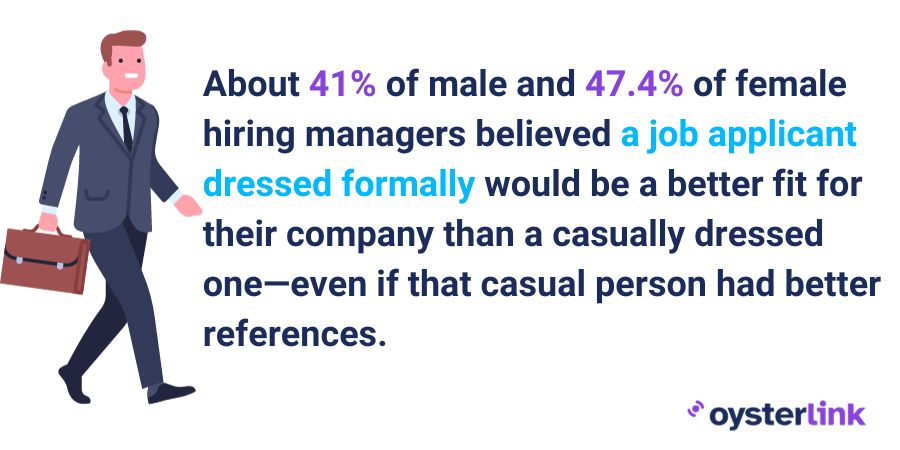
Furthermore, dressing well can significantly boost your confidence. When you feel comfortable and put-together in your outfit, you can exude a sense of self-assuredness that is readily apparent to your interviewer. Confidence is a key factor in effectively articulating your qualifications and experiences to potential employers.
Lastly, appropriate attire helps eliminate distractions. When you dress in a manner that aligns with the expectations of a professional interview, it ensures that the focus remains on your skills, qualifications and suitability for the job.
5 Bonus Tips for Looking Your Best in a Job Interview
Here are some additional tips to help you make the best impression:
- If you wear prescription glasses, keep them clean and polished. Non-prescription glasses can also be worn for a smart, studious look.
- Well-groomed nails are essential. Keep your nails clean and neatly trimmed. Avoid bold or overly long nail styles that might be distracting.
- If you have visible tattoos or piercings, consider covering or removing them for the interview if you believe they may be seen as distracting or unprofessional in your industry.
- Your hairstyle should be neat, well-maintained and professional. Avoid overly elaborate or eccentric hairstyles that may distract from your overall appearance.
- Carry a professional-looking portfolio or briefcase to hold extra copies of your resume, a notepad and a pen. It adds a touch of sophistication and organization to your appearance
Lastly, keep in mind that confidence is your best accessory. Wear a genuine smile, maintain a good posture and exude self-assuredness throughout the interview.
Now that you have a good grasp of what not to wear to a job interview, it’s time to focus on creating a memorable impression that goes beyond your attire.
To bolster your interview preparedness, we’ve put together a list of interview questions to help you get ready. Dress well, answer confidently and take that crucial step towards landing your a top-paying restaurant or hotel job!
